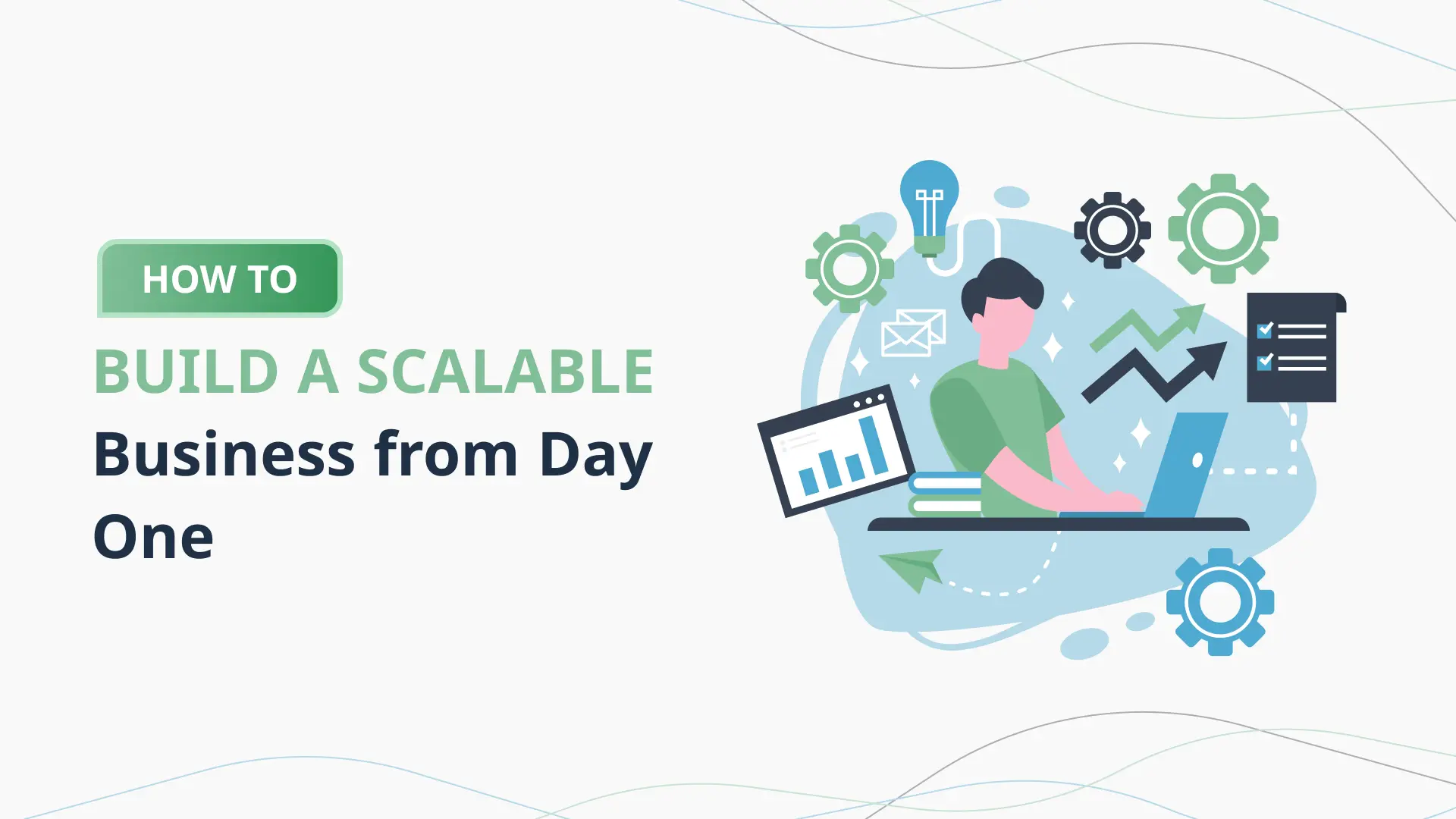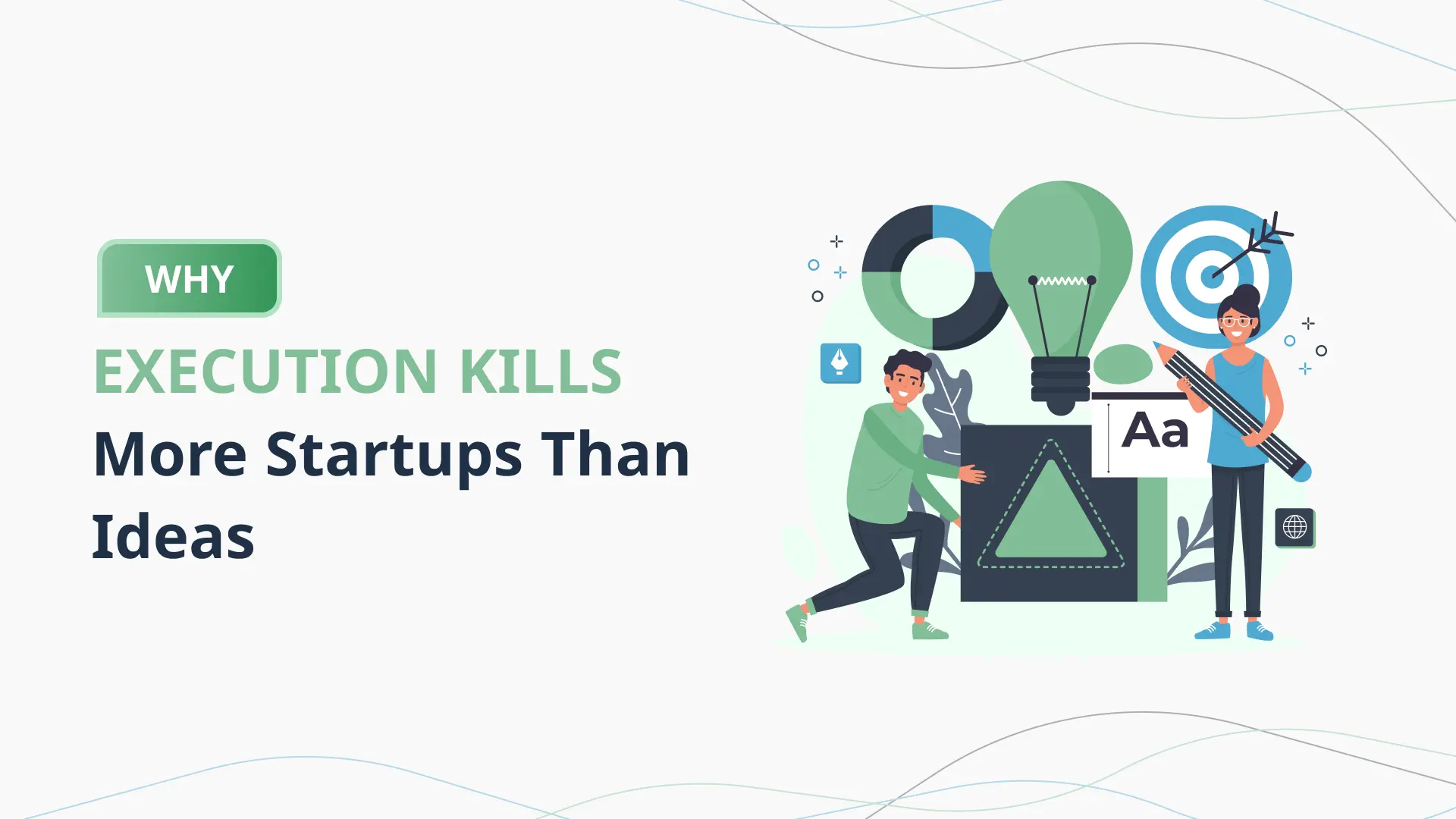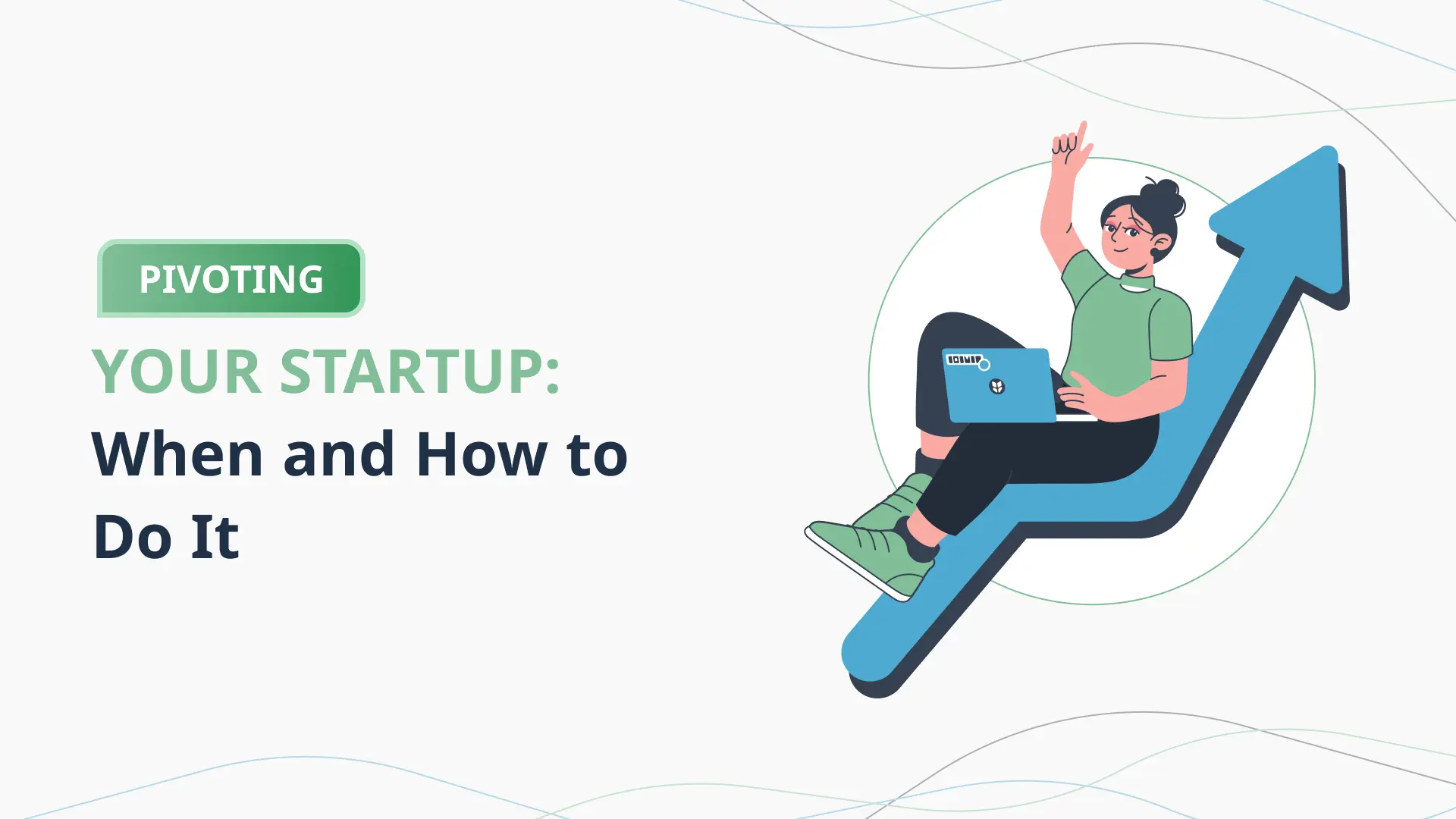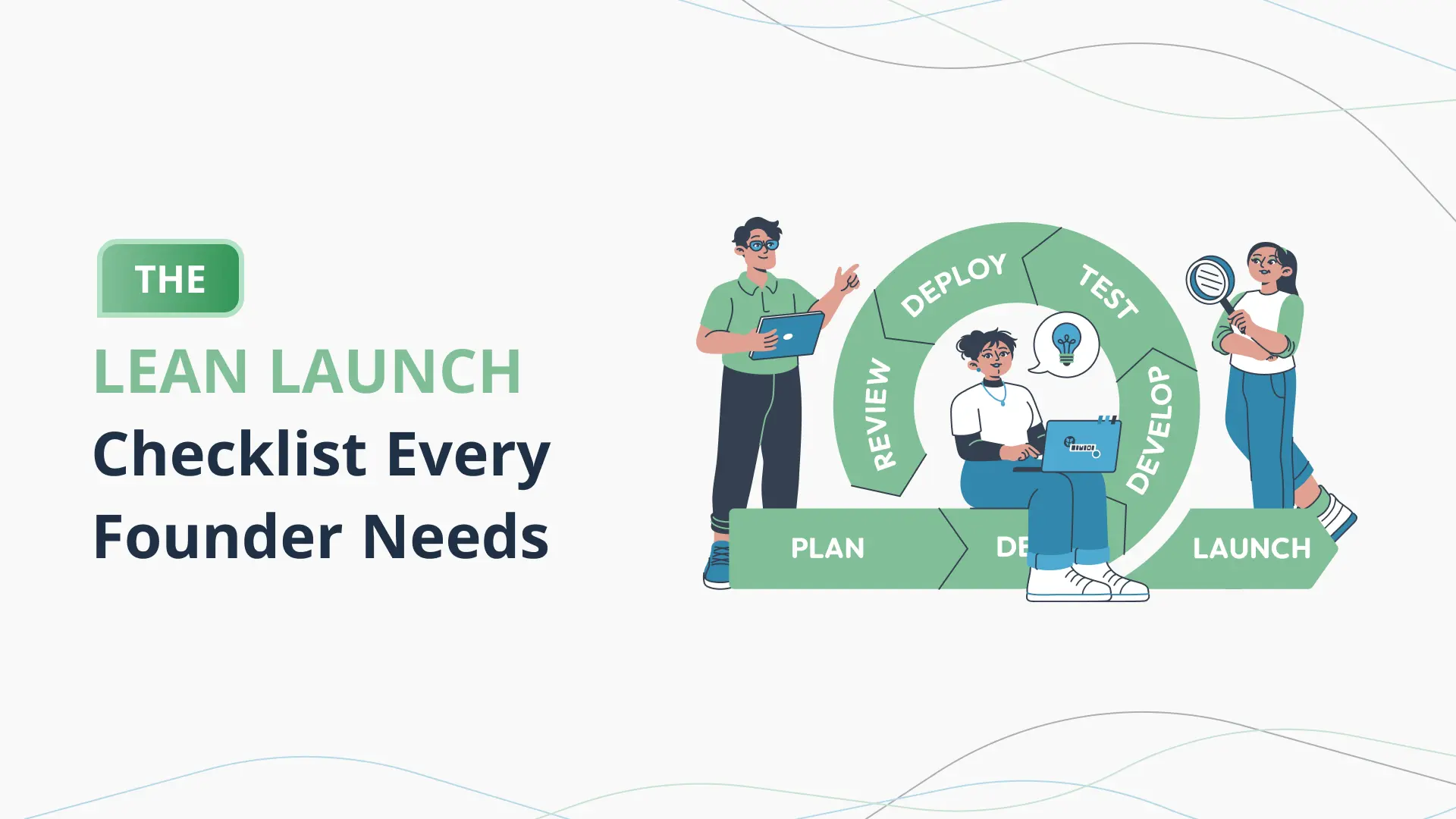Execution > Ideas: How to Actually Launch
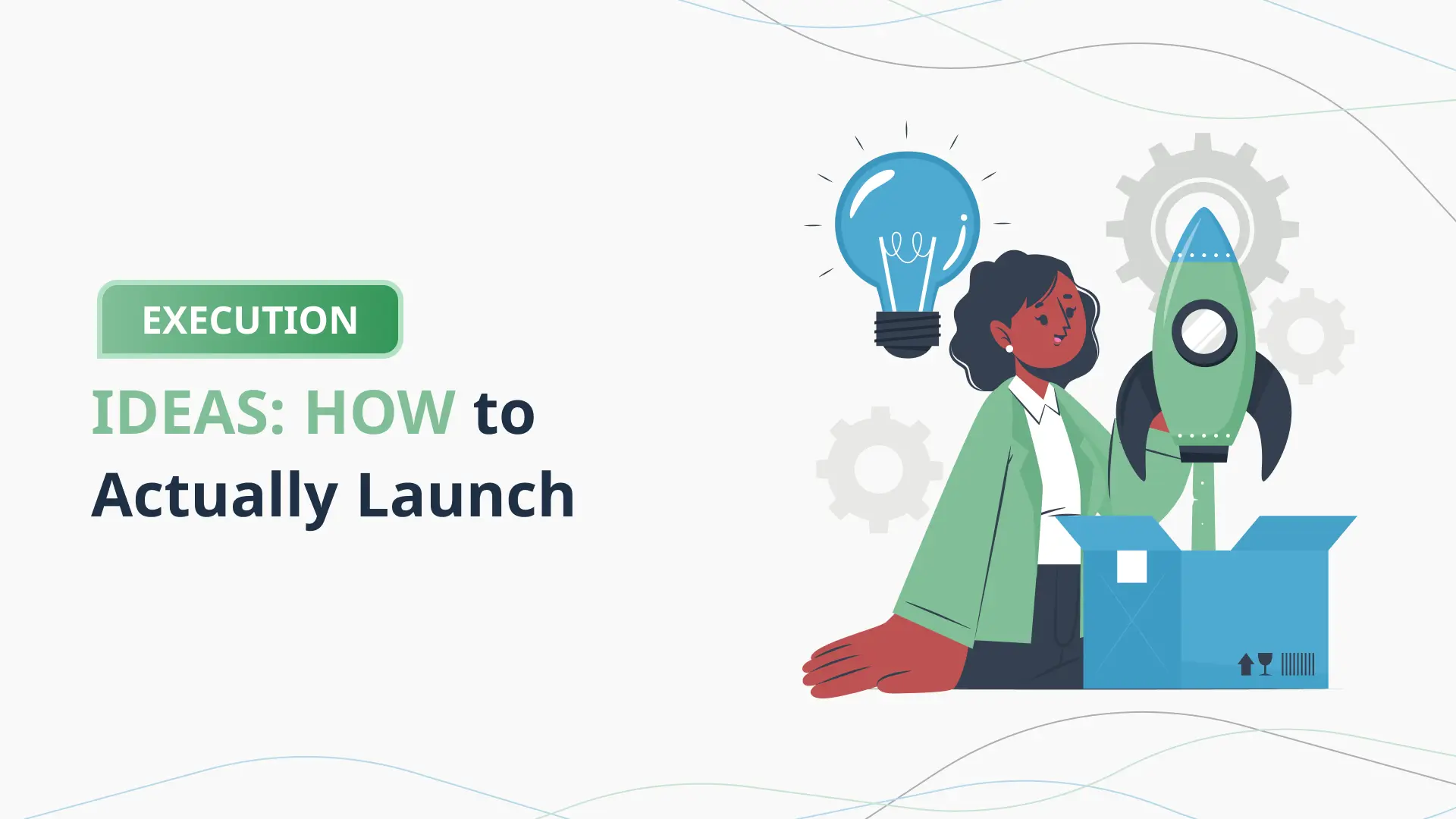
Introduction: Why Execution Trumps Ideas
In the bustling world of entrepreneurship, there’s no shortage of grand ideas. Ask any aspiring founder, and you’re bound to hear pitches about revolutionary apps, disruptive platforms, or game-changing services. But here’s a truth that seasoned entrepreneurs and investors know all too well: ideas are cheap—execution is everything.
Think about it—how many times have you heard someone say, “I had that idea years ago!” when discussing a successful startup? The difference between them and the startup that made it big lies in one critical factor: execution. Having a brilliant idea is just the starting point. It’s what you do with that idea, how you refine it, build upon it, and bring it to market, that truly matters.
Statistics support this harsh reality. According to CB Insights, some of the top reasons startups fail include running out of cash, lack of market need, and being outcompeted—all execution-related issues. Rarely do you see “bad idea” on that list. This highlights a crucial truth: the success of a startup isn’t rooted solely in its conceptual brilliance but in the grit, strategy, and perseverance that go into building it.
Execution is about action. It’s about putting systems in place, developing processes, assembling a team, validating the market, and iterating the product. It’s the day-to-day grind of pushing an idea from whiteboard to reality. This process requires a toolkit—a blend of discipline, strategic thinking, and increasingly, the right technology. And that’s where modern AI-driven solutions like the PlanVista app come in.
PlanVista isn’t just a business plan generator; it’s a powerful AI business plan tool and startup planning assistant that guides entrepreneurs through the complexities of turning an idea into a business. In a world where execution decides success, having a smart tool to organize your vision, forecast finances, and map out strategic goals can be a game-changer.
In this blog, we’ll explore why execution matters more than the initial idea. We’ll look at real-world examples where sharp execution made all the difference, unpack the most common pitfalls that derail startups, and demonstrate how tools like PlanVista help founders navigate these challenges. Whether you’re just getting started or trying to push past early-stage hurdles, understanding the execution process is key to launching successfully.
Let’s dive into why execution—not the idea—is the true engine of startup success, and how you can position yourself to not just dream, but do.
The Myth of the "Million-Dollar Idea"
In the startup ecosystem, there’s an enduring myth: that a single, brilliant idea is all it takes to make it big. It’s the romanticized notion that somewhere in your notebook or back-of-the-napkin sketch lies the next unicorn business—just waiting to explode. This belief is not only misleading; it’s a dangerous distraction.
Let’s clear the air: the idea itself, no matter how innovative, is only a fraction of the equation. As Derek Sivers famously said, “Ideas are just a multiplier of execution.” What he meant is that a great idea with poor execution is worthless, while even an average idea with stellar execution can lead to success. Think of it this way: if a genius idea is a multiplier of 20, but your execution is a 1, the result is still just 20. But if your idea is a 5 and your execution is a 10, you’re looking at 50. The math speaks for itself.
Look at the success stories we often idolize—Facebook wasn’t the first social network, Google wasn’t the first search engine, and Uber wasn’t the first ride-hailing service. What set them apart was not their originality, but how they executed. Facebook focused on user experience and exclusive access, Google nailed search speed and relevance, and Uber made rides convenient and cashless. Each of these companies took existing ideas and executed them better than anyone else.
Conversely, the startup graveyard is filled with companies that had great ideas but couldn’t pull off the execution. They may have had vision, but lacked focus, funding, timing, or the right team. Or maybe they failed to understand the market. Whatever the reason, the outcome was the same—the idea never materialized into a viable business.
This misunderstanding also leads many entrepreneurs to guard their ideas obsessively, fearing they’ll be stolen. But ideas are easy to replicate. Execution is not. Building a team, crafting a go-to-market strategy, designing a product, securing users, managing operations—these are the real differentiators.
Another problem with the “million-dollar idea” mindset is that it discourages action. Founders spend months or even years polishing their idea to perfection, waiting for the right moment or perfect conditions. But there’s no such thing. The market rewards those who ship, iterate, and improve. It favors doers, not dreamers.
That’s why modern tools like the PlanVista app are so crucial. Instead of waiting for inspiration to strike like lightning, PlanVista helps you break down your concept into actionable steps. As an AI business plan tool, it forces clarity—prompting you to validate assumptions, forecast finances, and prepare for execution. It transforms nebulous ideas into structured, executable strategies.
In essence, stop obsessing over the brilliance of your idea. Start focusing on how you’re going to build it, test it, and bring it to life. Because in the business world, it’s not the idea that wins—it’s the execution.
Real-World Examples of Execution Excellence
It’s one thing to talk about execution in theory—it’s another to see it play out in real life. Some of the most successful startups in recent history didn’t win because they had the most original ideas. They won because they executed with laser focus, agility, and customer obsession. Let’s look at a few standout examples that illustrate how strong execution can be a startup’s most valuable asset.
Slack: A Pivot Done Right
Slack is perhaps one of the most iconic examples of execution excellence. The company didn’t even start out as a communication platform. It was originally part of an internal tool developed during the creation of an online game called Glitch. The game failed, but the internal messaging system was so effective that the team realized its broader potential. They pivoted and refined it, focusing on seamless user experience, integrations, and intuitive design.
Rather than launching with an incomplete product, Slack rolled out with a meticulously crafted user onboarding experience and a focus on community feedback. They nailed every touchpoint—from the tone of their release emails to their customer support responsiveness. The result? Slack became one of the fastest-growing SaaS companies ever, proving that execution, not original ideation, is what drives traction.
Airbnb: Hustle Over Concept
Airbnb’s origin story is well-known. Its founders rented out air mattresses in their San Francisco apartment to help cover rent. It wasn’t a novel idea—classifieds and short-term rentals existed already. But their execution was relentless. They personally traveled to cities to photograph listings, built trust in a nascent peer-to-peer marketplace, and slowly built a brand that people could rely on.
At one point, they even sold cereal boxes branded “Obama O’s” and “Cap’n McCain’s” to fund operations—a bizarre but creative form of hustle that kept them afloat. The takeaway? Grit, creativity, and commitment to execution carried them through, not some magical idea.
Dropbox: Executing in a Crowded Market
When Dropbox launched, file sharing wasn’t a new concept. There were dozens of existing services. But Dropbox stood out by delivering an experience that “just worked.” Their execution focused on simplicity, reliability, and ease of use. They famously launched with a demo video that targeted the tech-savvy Digg community, driving massive early interest and viral growth.
Dropbox didn’t invent the category—they just executed better. They reduced friction, nailed their user acquisition strategy, and kept iterating based on user feedback. Execution gave them the edge in a crowded field.
These stories share a common theme: none of these companies were first to market or had the “most original” idea. What they had was a clear execution strategy, a willingness to iterate, and an unrelenting drive to solve real problems. Tools, strategy, persistence—these were their competitive advantages.
For modern entrepreneurs, this is where platforms like the PlanVista app make a tangible difference. By helping you map out your execution plan with detailed market analysis, financial modeling, and roadmap tools, PlanVista acts as your co-pilot—turning your startup ambitions into executable action plans.
Next, we’ll dig into the common execution challenges most startups face and how to overcome them.
Common Challenges in Execution
Leveraging AI Tools for Effective Execution
If execution is the fuel that powers a startup, then technology is the engine that optimizes the journey. In today’s fast-paced, data-driven world, startups no longer have to rely solely on gut instinct or manual processes. Enter artificial intelligence—an emerging co-pilot that transforms how entrepreneurs plan, adapt, and execute their ideas.
AI tools offer more than automation—they provide strategic advantages. From business planning to customer segmentation, AI helps entrepreneurs operate with the kind of precision and foresight that was once only available to large enterprises. This democratization of intelligence is particularly vital during execution, where every decision and dollar counts.
Smart Business Planning
One of the foundational uses of AI in execution is business planning. Traditionally, creating a business plan was time-consuming, filled with guesswork and static documents. AI-powered tools like the PlanVista app are changing that. As a business plan generator, PlanVista pulls in real-time market data, benchmarks, and industry insights to help entrepreneurs craft data-backed business plans.
Instead of just outlining ideas, PlanVista’s AI business plan tool evaluates their feasibility, offers strategic recommendations, and allows for dynamic adjustments as conditions change. It turns planning from a one-time task into an ongoing, intelligent process—essential for responsive execution.
Financial Forecasting and Scenario Modeling
Good execution requires financial clarity. You need to know how much runway you have, when to scale, and how to react if revenue dips. AI tools take the complexity out of financial forecasting. With PlanVista, for example, users can input a few key metrics and generate detailed financial projections with a variety of best-case, average-case, and worst-case scenarios.
This empowers startups to make informed decisions, from pricing strategies to investment rounds, all with greater confidence. AI turns financial planning from a spreadsheet guessing game into a strategic command center.
Marketing Optimization
Marketing is execution in action—reaching customers, communicating value, and driving growth. AI enhances this through automation and analytics. Tools now analyze customer behavior, segment audiences, and personalize outreach in real time. They can recommend optimal content, ad budgets, and posting schedules.
Startups using these tools don’t just market—they market smart. They launch faster campaigns, tweak strategies based on real-time feedback, and achieve higher returns on investment.
Operations and Workflow Automation
Startups often operate with lean teams, so maximizing productivity is essential. AI tools streamline operations by automating tasks like customer support, inventory management, and data entry. This frees up founders to focus on strategic work—developing partnerships, refining the product, and scaling effectively.
The PlanVista Advantage
PlanVista is more than a planning app—it’s an execution platform. It merges business intelligence with simplicity, offering startup founders an all-in-one AI-powered solution to plan, test, and adapt in real time. Its user-friendly interface, combined with deep analytics, makes it the go-to startup planning tool for modern entrepreneurs.
Introducing PlanVista: Your AI Business Planning Companion
Great execution isn’t about doing everything manually—it’s about doing the right things efficiently. That’s where smart tools make all the difference. If you’re serious about turning your startup idea into a real business, then you need a system that guides your planning, sharpens your decisions, and accelerates your progress. That’s exactly what the PlanVista app is built for.
What Is PlanVista?
PlanVista is a next-generation AI business plan tool designed to support entrepreneurs from ideation to execution. Whether you’re sketching out your first concept or refining a business that’s already in motion, PlanVista acts as your strategic co-founder—an intelligent, intuitive platform that transforms your vision into a structured, actionable plan.
It’s not just a business plan generator—it’s a startup planning tool built with real-world entrepreneurship in mind. Instead of handing you a static document, PlanVista offers dynamic planning capabilities, predictive analytics, and ongoing strategy recommendations based on real market data.
Why PlanVista Stands Out
There are plenty of tools that promise to help with startup planning. But what sets PlanVista apart is its ability to integrate the full planning journey into one seamless experience:
- Smart Business Plan Generator: PlanVista walks you through each section of a business plan, asking the right questions and populating fields with AI-assisted suggestions. No more staring at a blank page—PlanVista gives you a guided head start, backed by best practices and industry insights.
- Market Research & Competitive Analysis: The app scans your industry for relevant trends, benchmarks, and competitor profiles. It then synthesizes that data into actionable insights, helping you position your offering more strategically.
- Financial Forecasting Made Easy: PlanVista’s AI handles complex forecasting with simple inputs. You enter your costs, pricing model, and revenue assumptions, and the tool produces detailed financial projections, charts, and cash flow models.
- Real-Time Strategy Updates: As your business evolves, so does your plan. PlanVista allows you to update metrics, adjust goals, and instantly see the impact across your entire plan. This makes it ideal for pivoting or scaling as market conditions shift.
- Investor-Ready Output: Need to pitch? PlanVista turns your plan into polished, investor-ready documents that are clear, compelling, and professional.
Built for Founders, by Founders
PlanVista isn’t just another SaaS tool. It’s built by entrepreneurs who’ve navigated the startup grind. The app is designed to cut through the clutter and give you exactly what you need to execute—nothing more, nothing less.
Whether you’re a solo founder, a startup team, or even a small business looking to innovate, PlanVista adapts to your needs and grows with you. It gives you more than just structure—it gives you confidence.
Conclusion: Turning Ideas into Reality
We’ve all heard the phrase “ideas are a dime a dozen”—and when it comes to startups, it couldn’t be more accurate. What truly separates successful entrepreneurs from the rest isn’t the brilliance of their idea—it’s their ability to execute. Execution is where the rubber meets the road. It’s where vision is tested, refined, and either brought to life or left behind.
Throughout this blog, we’ve seen that execution is not just an abstract concept; it’s a series of deliberate actions. From building a real-world MVP and validating market demand, to managing resources and adjusting strategy based on feedback, execution demands discipline, focus, and adaptability. The best ideas in the world won’t succeed without a clear plan and the persistence to follow through.
We explored real-life examples of execution excellence—how companies like Slack, Airbnb, and Dropbox weren’t necessarily the first or most original, but they executed better than anyone else. We also unpacked the common challenges that derail startups: lack of planning, poor market validation, misaligned teams, financial mismanagement, and an inability to pivot. Each of these challenges is solvable—but only if you’re proactive and equipped with the right tools.
And that’s where the PlanVista app becomes more than just a utility—it becomes your partner. With its AI-powered business plan generator, detailed market insights, financial forecasting, and ongoing strategy support, PlanVista is more than a planning tool. It’s an execution engine that helps you stay focused, make data-driven decisions, and move forward with clarity.
For founders who are serious about launching and growing a successful business, leveraging smart tools isn’t optional—it’s essential. PlanVista bridges the gap between idea and execution, offering a step-by-step path from concept to reality. It gives you the power to plan strategically, adjust dynamically, and act decisively—all the hallmarks of effective execution.
So here’s the call to action: if you’re holding on to a great idea, now is the time to move. Don’t wait for perfect conditions. Don’t get lost in overthinking. Start building. Start testing. Start executing. And let PlanVista be the tool that empowers your journey.
Ideas spark the journey, but execution defines the destination. With the right mindset, the right plan, and the right support, your startup can move from sketch to success story. Download the PlanVista app today and take the first confident step toward actually launching your business.
FAQs
Execution turns a concept into a business. Many great ideas fail due to poor planning, lack of validation, or weak market execution.
PlanVista offers an AI-powered platform to build business plans, run financial forecasts, analyze markets, and adapt strategies in real time.
Yes, PlanVista is ideal for early-stage founders. It guides you from concept to execution with structured planning and actionable insights.
Unlike static planning templates, PlanVista uses AI to provide real-time market insights, strategy suggestions, and dynamic updates as your startup grows.
Absolutely. PlanVista is built with ease of use in mind, offering a simple, guided interface that doesn’t require technical expertise.




